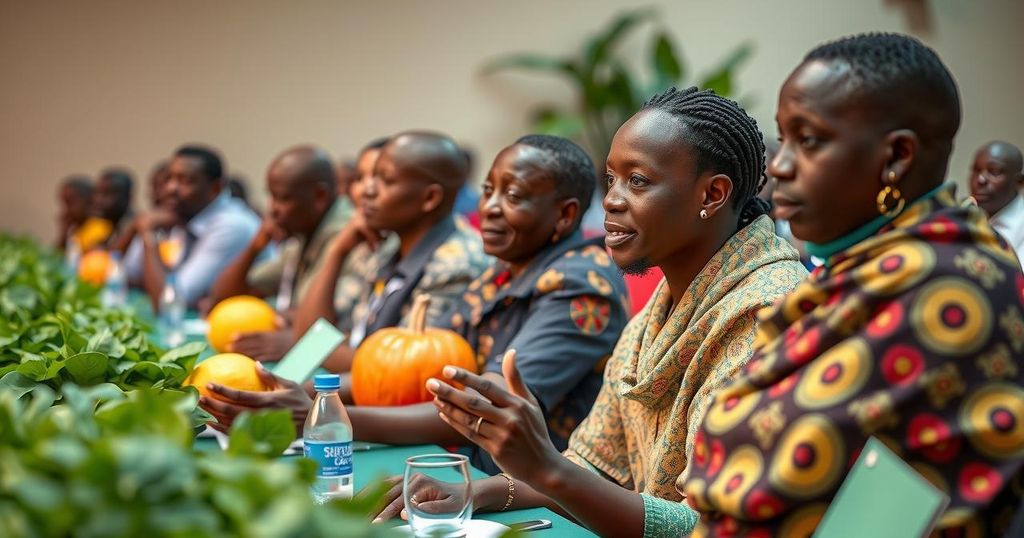African Ministers Strategize for Food Self-Sufficiency at AU Summit in Uganda

African agriculture ministers gathered in Uganda to address climate change impacts on food security. The summit aims to develop a 10-year plan for sustainable farming and food self-sufficiency amid rising global temperatures and increasing food insecurity affecting millions.
Ministers of agriculture from across Africa convened in Kampala, Uganda, for a crucial summit aimed at creating strategies to enhance food self-sufficiency on the continent. Amid severe challenges posed by climate change, which is causing record-high global temperatures and exacerbating food insecurity, discussions are focused on developing sustainable agricultural practices. The summit seeks to address the impacts of adverse climatic conditions, including droughts and floods, on food production and to explore the integration of modern technologies in agriculture.
The AU agriculture summit serves as a vital forum to evaluate the current agricultural landscape in Africa, particularly in the context of growing climate crises that threaten food systems. Reports from UNCTAD indicate a staggering increase in global food insecurity, from 512 million individuals suffering in 2014 to over 790 million in 2021. This context underscores the urgency for African nations to devise collective strategies to ensure food security through adaptable farming practices and policymaking.
In summary, the AU summit in Uganda represents a pivotal opportunity for African nations to unite in tackling the multifaceted challenges of food insecurity exacerbated by climatic changes. The call for a 10-year action plan emphasizes the necessity for collaborative policy development aimed at achieving food self-sufficiency while addressing environmental and social challenges. Ongoing dialogue and technological integration will be crucial for the continent’s agricultural advancement.
Original Source: northafricapost.com






